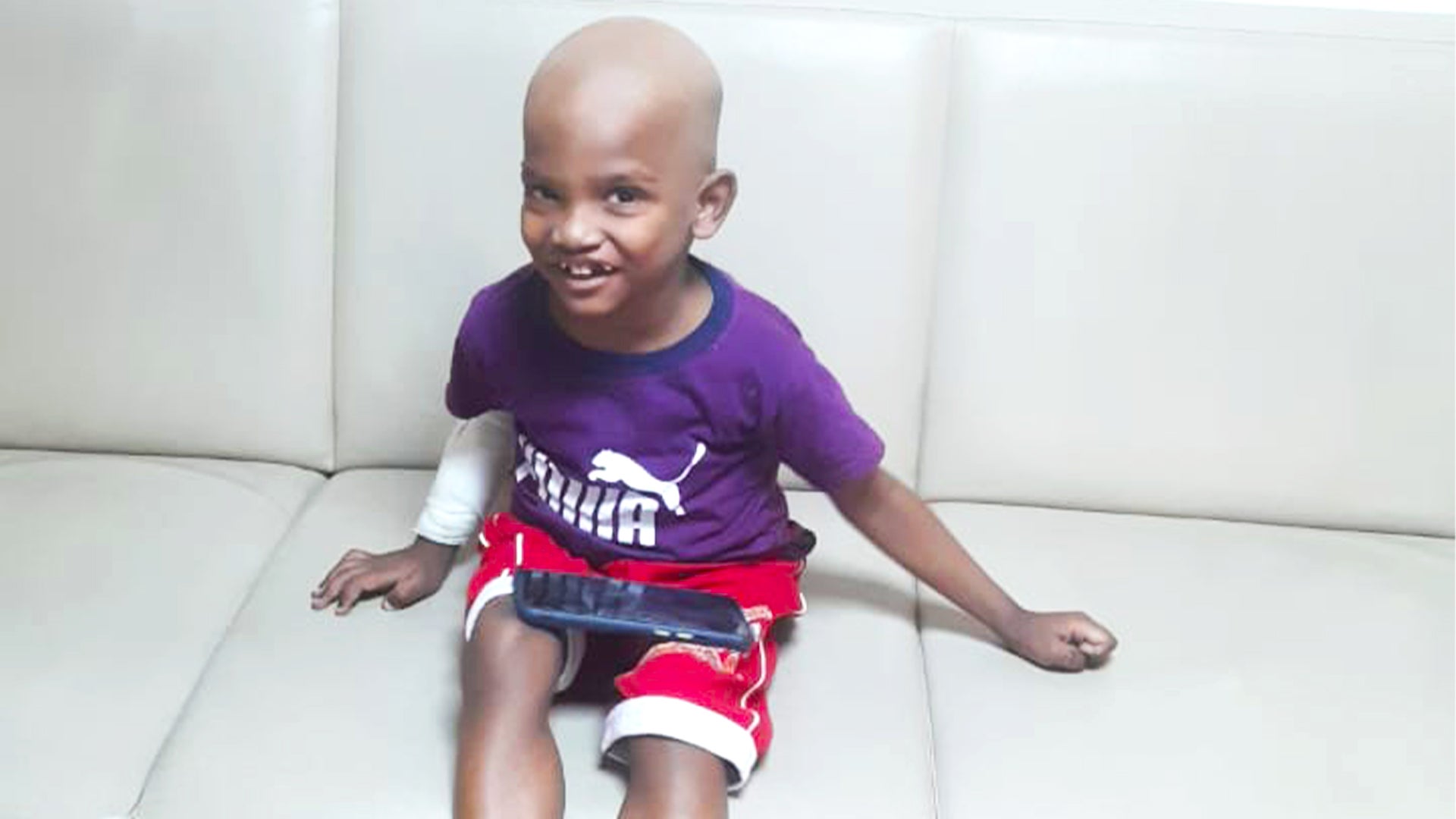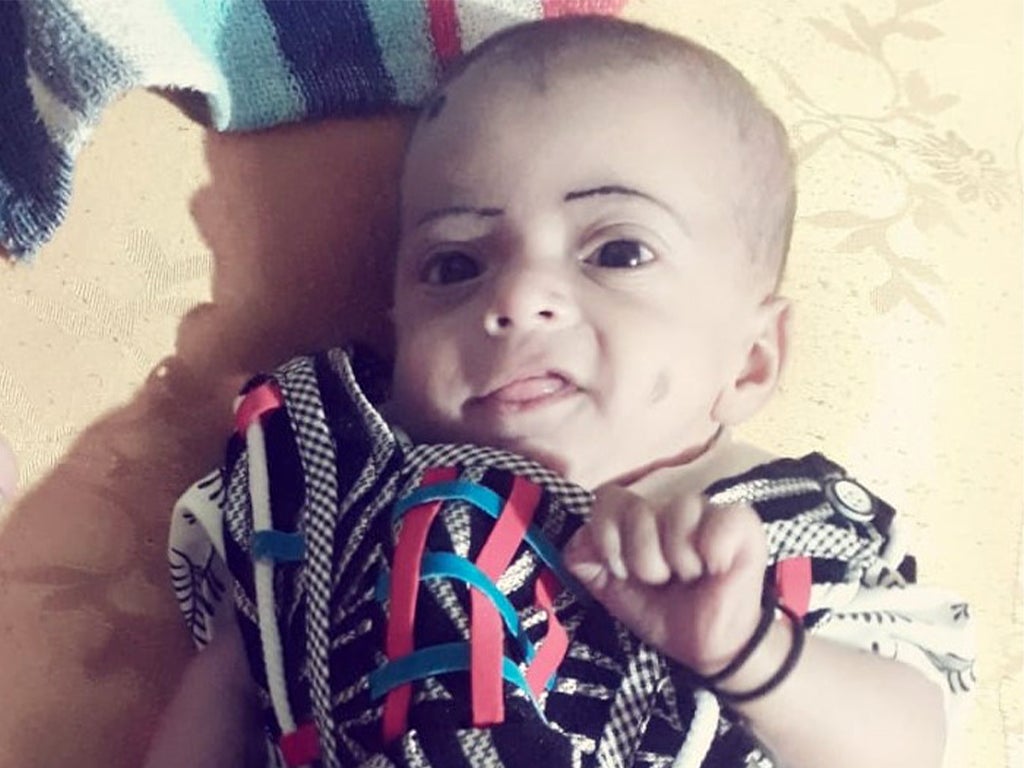DKMS Foundation India Patient Funding Programme

Thenmozhi, Harini's mother, faced a life-altering experience just a few months after her daughter's birth. Harini was diagnosed with Familial Hemophagocytic Lymph Histiocytosis (HLH), a disorder impacting body’s immune system. This debilitating disease, if not treated, could harm both her physical and mental growth.
A bone marrow transplant was the only curative treatment option for her condition. Since the disorder is extremely rare, the cost of treatment was exorbitant. It was very difficult for her parents to arrange the necessary funds for the treatment.
Harini's father, who worked in a factory, was unable to work regularly due to his daughter's treatment. This had a severe impact on the family's financial situation. In an effort to pay for her lifesaving treatment, he sold their only asset, a house in their village. However, the funds raised were insufficient and they were left with no means of support. "I knew she was suffering, but I was helpless," her father said.
The family was in dire need of financial support to bear the remaining treatment cost. Just as they began to lose hope, her treating physician connected them with DKMS Foundation India, and part of the treatment costs were covered by the Patient Funding Programme. Harini’s mother was a match and donated her stem cells to give her daughter a second chance at life. The transplant was successful, and the family looks positively into the future.
Like Harini, there are thousands of young patients in need of financial assistance and DKMS, through its DKMS Foundation India Patient Funding Programme, is trying to reduce the financial burden of these patients.
BIood Cancer and blood disorders; A growing burden in India
India has a population of more than 1.38 billion and witnesses over 100,000 new cases and 70,000 deaths from blood cancer annually. With over 42 million carriers, the country is also known as the Thalassemia capital of the world. The situation for blood cancer patients is challenging, especially those coming from middle and lower middle-class families. Getting the right treatment for such life-threatening diseases is unaffordable for most families. Thousands of patients are left untreated and lose their lives to blood cancer and blood disorders.
The most effective treatment for such life-threatening diseases is a blood stem cell transplant, ideally at an early age. Even for those patients who do get access to therapy and appropriate health care, this often results in heavy social and financial burdens on patients and their families. Guidance related to treatment, financial support and planning, are the most critical factors affecting access to treatment in India.
About our programme
The DKMS Foundation India Patient Funding programme, aims to improve the situation of financially underprivileged blood cancer and blood disorder patients in India, by covering a part of their treatment costs.
Under this programme, we closely cooperate with other non-profit organizations and transplant centers by contributing towards the cost of stem cell transplantation for Indian patients who would otherwise not receive adequate treatment. There are a few government schemes set up to help these patients financially, but sometimes they are not enough to cover the complete cost of treatment. Our collaboration partners have a proven track record of low-cost and high-quality transplantation.
How we help patients:
- By offering financial support to eligible patients
- By providing free counselling services for patients and their families
- By helping them find additional means of financial support from various platforms
- By providing free HLA typing to Thalassemia patients and their siblings/ parents with the aim of identifying a matching donor. This is covered by the DKMS Foundation India Thalassemia Programme, which also supports unrelated donor searches for patients who do not find a suitable family donor.
Who is eligible for this programme?
All the funding requests are evaluated by DKMS Foundation India against a set of pre-defined socio-economic criteria. Furthermore, a Medical Advisory Committee is formed consisting of experienced transplant physicians. The decision on funding is based on the medical opinion of the Medical Advisory Committee.
For more information: patientcare@dkms-bmst.org Contact: +91 90199 63482
SUCCESS STORIES & TESTIMONIALS
Mohit
3-year-old Mohit was diagnosed with Severe Aplastic Anemia and needed an Allogenic Stem Cell Transplant to survive. Mohit's father works as a daily wager (agricultural) and his mother is a homemaker.
The cost for Mohit’s transplant was unaffordable. Even after receiving financial support from government, the funds were not sufficient. That is when his treating physician approached the DKMS Foundation India Patient Funding Programme for financial assistance. The case was evaluated, and it fulfilled the eligibility criteria of the programme, and Mohit successfully underwent a transplant in January 2022.

Maajidha
Naazima’s daughter, Maajidha, 7-months-old, was admitted in the hospital for 2 months after being diagnosed with Severe Combined Immuno Deficiency. She was rushed to the ICU multiple times, but her condition worsened. Without a stem cell transplant, her chance of survival was very low. Naazima’s daughter was fighting for her life.
Her father Allaudin owned a stationery shop and during every visit to the hospital, he had to close his shop and incur a loss of income.
While Allaudin turned out to be a matching donor for his daughter, unfortunately they could not afford the overwhelming cost of the treatment. Her parents had pawned off everything they had just to clear the hospital bills that had been piling up over the last two months. They had nothing left, so they could not afford the stem cell transplantation. Their treating physician put them in touch with DKMS Foundation India.

DKMS, through their DKMS Foundation India Patient Funding Programme, were able to offer financial support and cover part of the transplantation costs. The transplant was successful and Maajidha is now a happy, healthy baby.